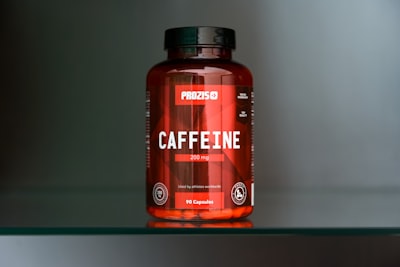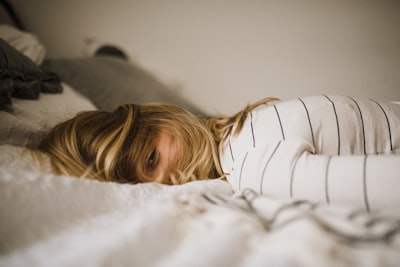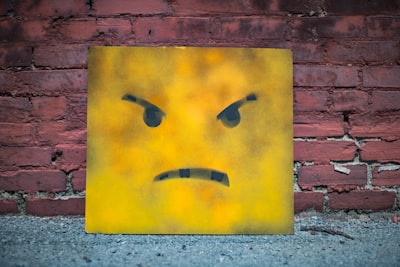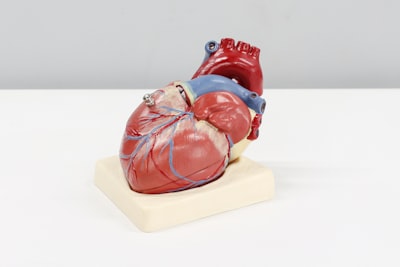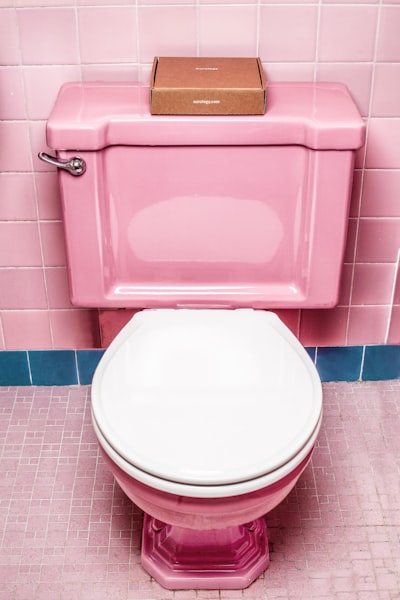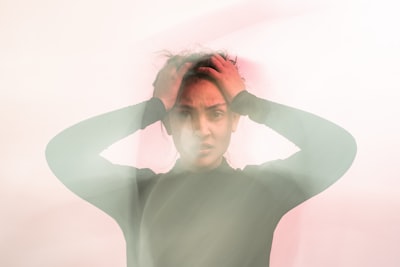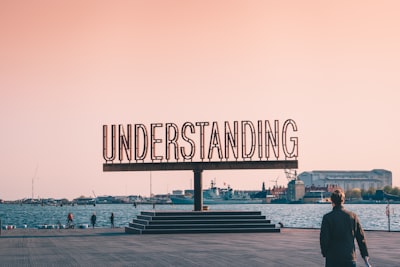Wondering what to do if you've had too much caffeine?
Wondering what to do if you've had too much caffeine? You're not alone! We all love our daily cup (or cups!) of coffee, but have you ever felt like you're overdoing it? Too much caffeine can lead to a range of side effects that can leave you feeling jittery, anxious, and downright uncomfortable. But don't worry - we've got your back! In this post, we'll explore the symptoms of excess caffeine consumption and how to identify if you're drinking too much. We'll also cover some actionable strategies to combat caffeine side effects, including hydration, key IV drink solutions that can counterbalance caffeine intake, physical activity, dietary changes, deep breathing, and meditation. Plus, we'll explore alternative beverages to caffeine that can be just as satisfying without the negative side effects. So sit back with your favorite non-caffeinated drink and let's dive into how to fight the side effects of too much caffeine.
Identifying the Side Effects of Excess Caffeine
Excess caffeine intake can have negative effects on the body, impacting your overall well-being. It's important to be aware of the potential side effects that can arise from consuming too much caffeine. These side effects can range from elevated blood pressure and heart palpitations to shakiness and anxiety. The central nervous system can also be affected, leading to symptoms such as headaches and trouble sleeping. Monitoring your caffeine intake in moderation is crucial for avoiding these potential side effects and maintaining your long-term health.
Symptoms of Overconsumption
Overindulging in caffeine can lead to a range of unpleasant symptoms. Consuming too much caffeine can cause restlessness and jitteriness, making you feel on edge. It may also result in an increased heart rate and palpitations, which can be concerning. Anxiety and nervousness are common symptoms of excessive caffeine intake. Additionally, consuming too much caffeine can disrupt your gastrointestinal system, potentially causing issues like diarrhea. Monitoring your caffeine intake and practicing moderation are essential for preventing these symptoms.
Headache
Headaches can be a common side effect of consuming excessive amounts of caffeine. Caffeine acts as a stimulant and can trigger headaches in some individuals. Migraines may also occur as a result of overconsumption of caffeine. If you're experiencing caffeine-induced headaches, reducing your intake of caffeine can help alleviate the symptoms. Cutting back on the number of cups of coffee or other caffeinated beverages you consume can make a significant difference. It's important to remember that moderation is key when it comes to caffeine consumption.
Trouble Sleeping
Having too much caffeine can really mess with your sleep patterns. It can make it difficult to fall asleep and even lead to insomnia. If you're having trouble sleeping, try limiting your caffeine intake before bedtime. This can help promote better sleep and improve the quality of your rest. Cutting back on caffeine can make a big difference. So, if you find yourself tossing and turning at night, consider reducing your caffeine consumption. Your body will thank you for it!
Irritability
Excessive caffeine consumption can contribute to irritability and make you more prone to mood swings. It's no surprise that irritability is a side effect of consuming too much caffeine. However, reducing your caffeine intake can help stabilize your mood and reduce irritability. By monitoring your caffeine consumption, you can take control of your emotional well-being. Remember, moderation is key when it comes to caffeine. So, if you find yourself feeling irritable, it might be time to cut back on those cups of coffee and give your nervous system a break.
Increased Heartbeat
Consuming excessive amounts of caffeine can lead to an increased heart rate. Overindulging in caffeine can cause palpitations and irregular heartbeat. It's important to note that high caffeine intake may result in a rapid heart rate. To regulate your heart rate, consider reducing your caffeine consumption. Monitoring your caffeine intake is also essential for maintaining a healthy heart rhythm. Remember, moderation is key when it comes to caffeine. Taking care of your cardiovascular health is paramount, so be mindful of your caffeine intake.
Increased Thirst
Excessive caffeine consumption can leave you feeling parched. Consuming too much caffeine can act as a diuretic, causing dehydration. It's not uncommon to experience a constant feeling of thirst when you consume high amounts of caffeine. One way to combat this is by limiting your caffeine intake. By monitoring your hydration levels, you can counteract the effects of caffeine and ensure you stay properly hydrated throughout the day. Remember, moderation is key when it comes to caffeine consumption.
Frequent Urination
Consuming excessive amounts of caffeine can result in frequent urination. The high intake of caffeine acts as a diuretic, increasing urine production. As a result, you may find yourself needing to use the bathroom more frequently. To regulate urinary frequency, it is important to limit caffeine intake and monitor your consumption. By doing so, you can help maintain normal urinary patterns and avoid the inconvenience of frequent trips to the restroom. Remember, moderation is key when it comes to caffeine consumption.
Chest Pain
Excessive caffeine intake can sometimes lead to chest pain in certain individuals. Consuming too much caffeine may cause a sensation of tightness in the chest. It's important to note that chest pain can be a side effect of high caffeine consumption. To alleviate these symptoms, it is recommended to reduce your caffeine intake. Monitoring your caffeine consumption is crucial for maintaining heart health. Remember, moderation is key when it comes to caffeine. Taking care of your heart by being mindful of your caffeine intake can help prevent any potential chest pain in the future.
The Link between Caffeine and Anxiety
Consuming excessive amounts of caffeine can worsen anxiety symptoms, leading to increased feelings of nervousness and restlessness. Studies have shown a direct link between high caffeine intake and heightened anxiety levels. To manage anxiety symptoms, it is important to reduce caffeine consumption. By monitoring your caffeine intake, you can promote better mental well-being. It's worth noting that the United States Food and Drug Administration recommends limiting caffeine to no more than 400 milligrams per day, which is about 4 cups of coffee. Moderation is key when it comes to keeping your anxiety in check and protecting your overall mental health.
Understanding Your Caffeine Intake
Caffeine, a natural stimulant found in coffee, tea, and soda, can have side effects like increased heart rate and jitters when consumed excessively. To prevent these uncomfortable symptoms, it's important to monitor your caffeine intake. The FDA recommends a moderate amount of caffeine for healthy adults. Being aware of the caffeine content in your favorite drinks is crucial. By keeping track of your caffeine consumption, you can avoid complications like high blood pressure and nervous system overstimulation. Remember, moderation is key to maintaining good health.
Sources of Hidden Caffeine
Did you know that caffeine can be found in unexpected places? Chocolate, energy drinks, and even some medications contain caffeine. It's important to read food labels carefully to identify products that may have caffeine hidden in them. Be cautious of supplements as well, as they may also contain caffeine. Surprisingly, even some pain relievers, like aspirin, have caffeine in them. So, it's crucial to be mindful of your overall caffeine intake, including these hidden sources. Stay alert and aware to avoid any potential side effects from consuming too much caffeine.
Actionable Strategies to Combat Caffeine Side Effects
Feeling the negative effects of too much caffeine? Here are some ways to combat those side effects. First, try reducing or eliminating your caffeine intake if you're experiencing adverse effects. Staying hydrated can also help alleviate some of the symptoms. Waiting for the caffeine to metabolize out of your system can ease the discomfort. Engaging in regular physical activity can counteract the effects of caffeine, and deep breathing exercises can promote relaxation and reduce anxiety. By implementing these strategies, you can combat the side effects of excessive caffeine intake.
1 | Stop caffeinating as soon as you notice adverse effects
If you start experiencing negative side effects from consuming too much caffeine, it's important to pay attention to how your body reacts and take action to minimize the impact on your health. Recognizing the signs of excessive caffeine intake can help you make informed decisions about your caffeine consumption. Listen to your body and reduce or eliminate your caffeine intake as needed. Taking breaks from caffeine can also help reset your tolerance and reduce the risk of side effects. Prioritize your well-being by being mindful of your caffeine intake and making adjustments as necessary.
2 | The Role of Hydration
When you've consumed too much caffeine, staying hydrated is crucial. Drinking plenty of water helps counteract the diuretic effects of caffeine, preventing dehydration and minimizing symptoms like headaches. Hydration is important for overall health, regardless of your caffeine intake. By balancing your caffeine consumption with adequate hydration, you can contribute to a healthier lifestyle. Remember to drink water throughout the day to maintain proper hydration levels. It's a simple yet effective way to combat the side effects of too much caffeine.
3 | Wait it out
If you find yourself experiencing caffeine side effects, give your body some time to process and metabolize the caffeine. It's important to remember that symptoms will often subside as the caffeine is naturally regulated and processed by your body. Patience and self-care can go a long way in alleviating any discomfort caused by excessive caffeine intake. To help your body restore balance and reduce caffeine-related symptoms, it's best to avoid additional sources of caffeine and trust in your body's ability to regulate itself. Remember, allowing your body to naturally metabolize the caffeine is key.
4 | Importance of Physical Activity
Regular physical activity plays a crucial role in combating the side effects of excess caffeine. Not only does it help burn off the extra energy from caffeine, but it also releases endorphins that counteract feelings of jitteriness caused by caffeine. Engaging in physical activity promotes overall well-being and can mitigate the impact of caffeine on your body. By incorporating exercise into your routine, you can prevent and manage caffeine-related side effects. It's important to find activities you enjoy and make them part of your daily or weekly routine.
5 | Beneficial Effects of Deep Breathing
If you find yourself feeling anxious or experiencing the stimulating effects of too much caffeine, incorporating deep breathing exercises into your daily routine can be beneficial. Deep breaths can help reduce anxiety, promote relaxation, and counteract the jittery feeling caused by caffeine. By taking slow, deliberate breaths, you can regulate your heart rate and bring a sense of calmness to your body. Practicing deep breathing regularly can improve your overall well-being and enhance your ability to manage the side effects of caffeine. So, why not give it a try and see the positive effects it can have on your mind and body?
6 | Dietary Changes: More Fiber, Less Caffeine
6 | Dietary Changes: More Fiber, Less Caffeine
Want to minimize the impact of excessive caffeine on your body? Try increasing your fiber intake. Fiber-rich foods can slow down the absorption of caffeine, reducing its effects on your nervous system. In addition to managing caffeine side effects, consuming a balanced diet with plenty of fruits, vegetables, and whole grains supports overall health and well-being. Consider swapping out your cups of coffee for healthier alternatives to reduce your overall caffeine intake. Making dietary changes can be a proactive approach to supporting your health and managing the symptoms of too much caffeine.
7 | Meditate
Looking for a way to combat the side effects of too much caffeine? Give meditation a try! Not only can it help reduce anxiety and promote a sense of calm, but it can also counteract the stimulating effects of caffeine. By incorporating meditation into your daily routine, you can better manage caffeine-related symptoms and enhance self-awareness. And the best part? There are various meditation techniques to choose from, so you can find what resonates with you and supports your well-being. Start exploring the benefits of meditation today!
8 | Use a Trusted Hydration Solution
[INSERT PRODUCT USP]
Alternative Beverages to Caffeine
If you're looking for alternative beverages to caffeine, there are several options to consider. Herbal teas can be a great caffeine-free alternative, offering a calming and soothing effect. Non-caffeinated drinks like fruit-infused water can also provide a refreshing and hydrating boost. If you still want the taste of coffee or tea without the caffeine, opt for decaffeinated versions. Green tea is another option, as it contains less caffeine than traditional black tea or coffee. For a natural energy boost, you can experiment with drinks like matcha, which contains an amino acid called L-theanine that promotes alertness without the jitters.
Exploring Herbal Teas and Other Non-Caffeinated Drinks
If you've had too much caffeine and are experiencing symptoms of overconsumption, it might be time to explore herbal teas and other non-caffeinated drinks. Herbal teas like chamomile and peppermint can provide relaxation without the jolt of caffeine. Non-caffeinated options such as fruit juices and smoothies can be refreshing and hydrating. Infused water with fruits and herbs offers a flavorful alternative to caffeinated beverages. For those who enjoy a warm and cozy drink, hot cocoa made with unsweetened cocoa powder can be a comforting and caffeine-free option. And if you still crave the taste of coffee, you can try decaffeinated herbal coffee for a similar experience without the stimulating effects.
How Long Does It Typically Take to Recover from Caffeine Overdose?
The recovery time from caffeine overdose varies based on individual factors such as metabolism and caffeine intake. While the half-life of caffeine is typically 3-5 hours, it may take 6-12 hours for it to fully leave your system. Symptoms usually subside within 24 to 48 hours, and staying hydrated, eating fiber-rich foods, and getting rest can help speed up the recovery process.
Frequently Asked Questions
How can you go to sleep after having too much caffeine?
To help you sleep after consuming too much caffeine, allow at least 6 hours before bedtime for caffeine metabolism. Drink water to flush it out of your system, take a short nap to reduce its effects, and try relaxation techniques like deep breathing or meditation.
How Long Does It Take For Caffeine to Wear Off?
The duration for caffeine to wear off varies depending on the individual and the amount consumed. On average, it takes about 3-5 hours for half of the caffeine to be eliminated from your system. Factors like age, weight, and metabolism can impact how quickly caffeine wears off. To avoid side effects, it is recommended to limit caffeine intake or switch to decaf after midday.
Are caffeine alternatives available for stimulation without the side effects?
Yes, there are alternative sources of stimulation that can provide energy without the side effects of caffeine. Green tea, yerba mate, and ginseng are some examples. These alternatives offer a sustained boost in energy and have fewer adverse effects. Always consult with a healthcare professional before trying new supplements or sources of energy.
How Much Caffeine in a Cup of Coffee?
The caffeine content in a cup of coffee can vary depending on the type and preparation method. On average, an 8 oz cup of brewed coffee contains about 95 mg of caffeine, while a single shot of espresso has around 63 mg. Different coffee drinks like lattes and cappuccinos can also have varying amounts of caffeine.
How can you eliminate caffeine out of the body quickly?
To eliminate caffeine from the body quickly, drink plenty of water to flush it out. Increase blood flow through exercise to help eliminate caffeine. Incorporate potassium-rich foods like bananas to regulate its effects. Ultimately, time is the most effective way to eliminate caffeine.
Conclusion
In conclusion, excessive caffeine consumption can lead to various side effects that can negatively impact your well-being. From headaches and trouble sleeping to irritability and increased thirst, it's important to be aware of these symptoms. It's crucial to understand your caffeine intake and identify hidden sources of caffeine in order to combat its side effects effectively. Taking action such as stopping caffeine consumption when adverse effects arise, staying hydrated, engaging in physical activity, practicing deep breathing, making dietary changes, and incorporating meditation can help alleviate the symptoms. Additionally, exploring herbal teas and other non-caffeinated drinks can provide alternative options. Remember, recovery from caffeine overdose may vary, but with time and proper self-care, you can restore balance to your body and minimize the negative effects.
DISCLAIMER: THIS WEBSITE DOES NOT PROVIDE MEDICAL ADVICE
The information, including but not limited to, text, graphics, images and other material contained on this website are for informational purposes only. No material on this site is intended to be a substitute for professional medical advice, diagnosis or treatment. Always seek the advice of your physician or other qualified health care provider with any questions you may have regarding a medical condition or treatment and before undertaking a new health care regimen, and never disregard professional medical advice or delay in seeking it because of something you have read on this website.


